Costa Rica Turns Right With Laura Fernández’s Victory
The presidential elections held in Costa Rica on February 1, 2026, resulted in a clear message that once again confirmed Latin America's shift to the...

4 min read
There is no question that digital nomads are hot right now. With many jobs going to work from home due to the pandemic, employment is less location-dependent than ever before. This has led to a substantial increase in interest in the digital nomad lifestyle. After all, why not enjoy a lower cost of living and the opportunity to experience different cultures and new countries while at the same time working remotely? It is like a perpetual vacation.
At the same time, this raises some interesting legal questions. Where exactly should a digital nomad pay taxes on their income? It is one thing if you are employed and your boss withholds a percentage of your pay to cover income and payroll taxes, but what about independent contractors and freelancers who pay their own taxes? Do they owe in the country they are temporarily living in? In their own country? Have they discovered some sort of magical no-tax loophole? And what about the legal and ethical question of working remotely on a tourist visa?
Enter the digital nomad visa. Several countries have decided to pave a legal path for remote workers, freelancers, and digital entrepreneurs to legally come to visit and work remotely.
In this article, we're going to discuss what is a digital nomad visa and how you can get one.
Let's start with;
A digital nomad is someone who works remotely and earns their income from their computer. This can be an employee of a company, a business owner, or a freelancer. However, a digital nomad must not be associated with, employed, or have clients in the country where they hold their digital nomad visa.
A digital nomad visa is a temporary residence permit for those who earn an income working remotely.
Typically, these visas last from 6 months (Iceland) or one to two years but can be extended for a longer period of time.
This visa allows you to legally reside in a foreign country without changing your employment or job. You can do exactly what you were doing in your home country, working remotely, but now you’re travelling through a new country.
Many countries have digital nomad visa programs, which make it easy for remote workers to travel while working. Other countries seem to be going with the flow and have upcoming digital nomad visa programs, too.
A good internet connection is essential for anyone who wants to live as a digital nomad, so you have to consider when choosing where you go. In addition to the countries below, it also has digital nomad visa programs for South Korea, Argentina, Cape Verde, Malaysia, Portugal, Germany, Seychelles and more.
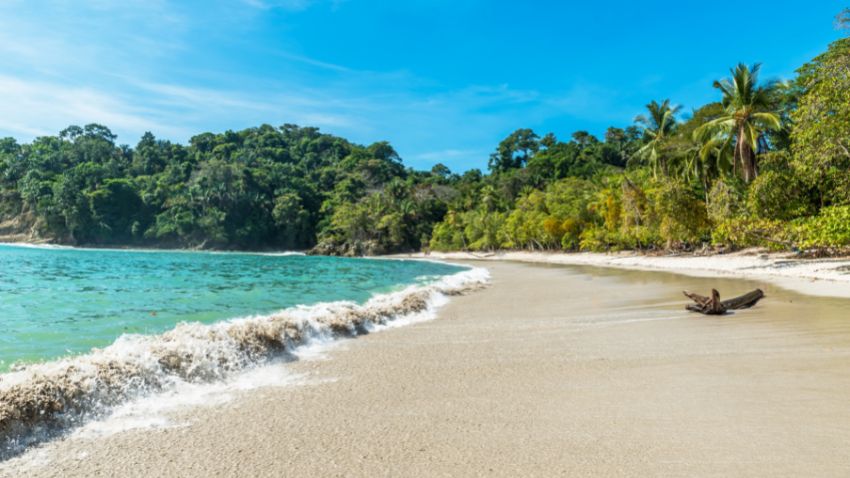
Manuel Antonio, Costa Rica
Costa Rica is a popular expat destination for North Americans. They finally unveiled their digital nomad visa in July 2022. The application process is expected to take only two weeks, so it is ideal if you are in a hurry to escape the coming winter months.
You must have an income of at least $3,000 USD a month or $4,000 USD if you bring your family. In addition, you are required to have health insurance. The visa will be valid for 12 months and can be extended. You will also not owe any income tax to Costa Rica for the time you spend working there.
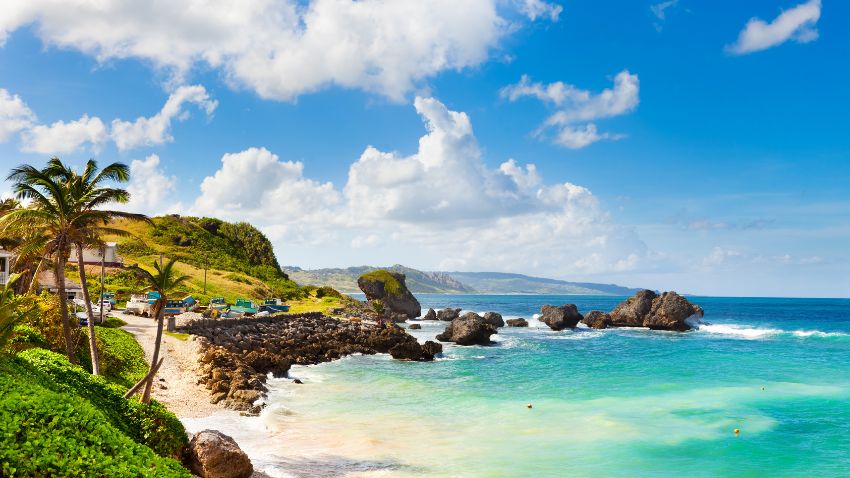
Bathsheba Shoreline, Barbados
If you have to work, why not do it from an island paradise? That is the thought behind the Barbados Welcome Stamp, their take on a digital nomad visa. This visa is valid for 12 months and is aimed at remote workers and freelancers.
There is a cost of $2,000 USD to apply individually, or you can pay the $3,000 USD family bundle and bring along your spouse and kids (pets can come, too). You must have a minimum income of $50,000 USD, and the expected approval period is only one week. Visitors with this visa will not owe any income tax in Barbados.
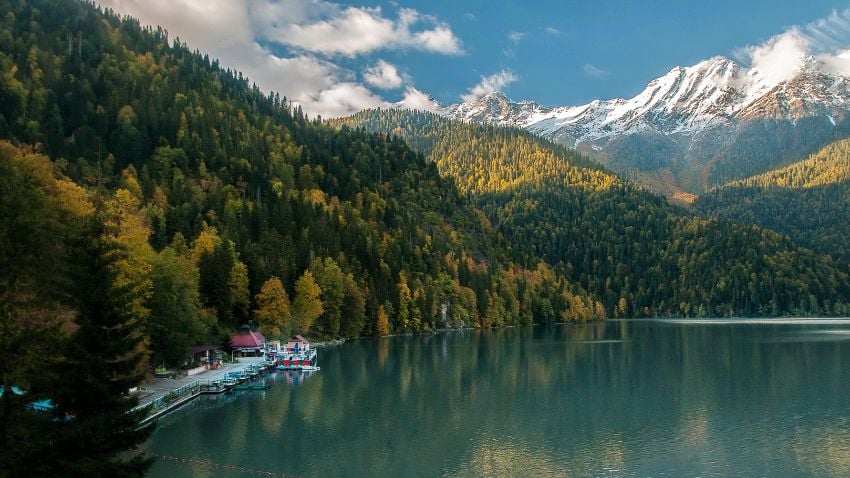
Gagra Mountainside, Georgia
Georgia is an increasingly popular destination for digital nomads because of the low cost of living and beautiful natural scenery. The requirements for the 12-month “remotely from Georgia” visa are an income of at least $2,000 USD per month or $24,000 USD in the bank, travel insurance, and you must work remotely for a foreign company or be a freelancer / have your own business.
The application itself is completely free and is generally processed in ten working days. Georgia also offers a very attractive 1% tax on gross revenue of approximately $150,000 USD or less for certain small businesses, making it an ideal expat destination for qualifying freelancers or entrepreneurs.
Related content: The Basics Of How To Get A Second Passport Or A Second Residency

The Acropolis of Athens, Greece
Another low-cost living country that offers a digital nomad visa is Greece. If you have ever wanted to tour the cradle of Western civilization or visit the Parthenon, this may be just the opportunity you have been waiting for. This digital nomad visa costs just €75 ($82 USD) and is valid for a year. You must demonstrate an income of at least €3,500 ($3,834 USD) per month (with an additional 20% increase for a spouse and 15% per child).
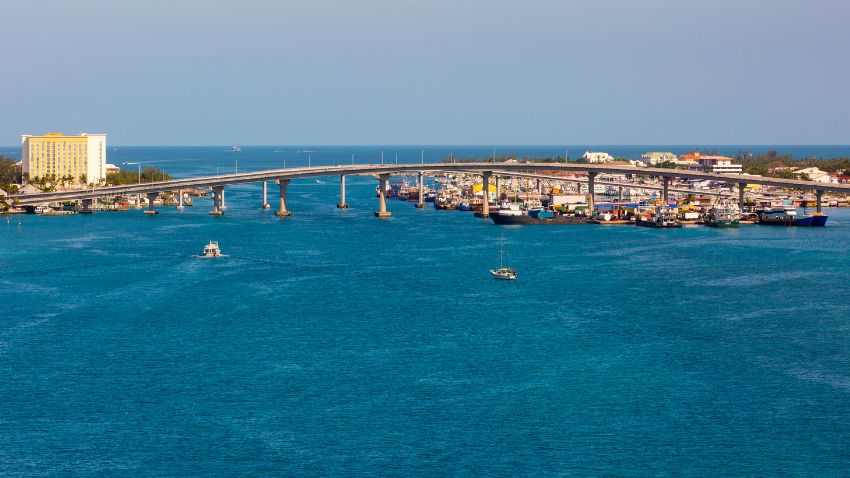
Aerial view of Nassau, The Bahamas
Another island nation in the Caribbean offering a digital nomad visa is The Bahamas. To qualify for the Bahama B.E.A.T.S. (Bahamas Extended Access Travel Stay) program, you must have health insurance and proof of remote work or self-employment. There is no specific income requirement, and the visa is valid for one year. The application fee is only $25 USD, and you also have to pay $1,000 USD for the work remotely permit, plus $500 USD for each dependent. You can expect a turnaround on your application in as little as five business days.
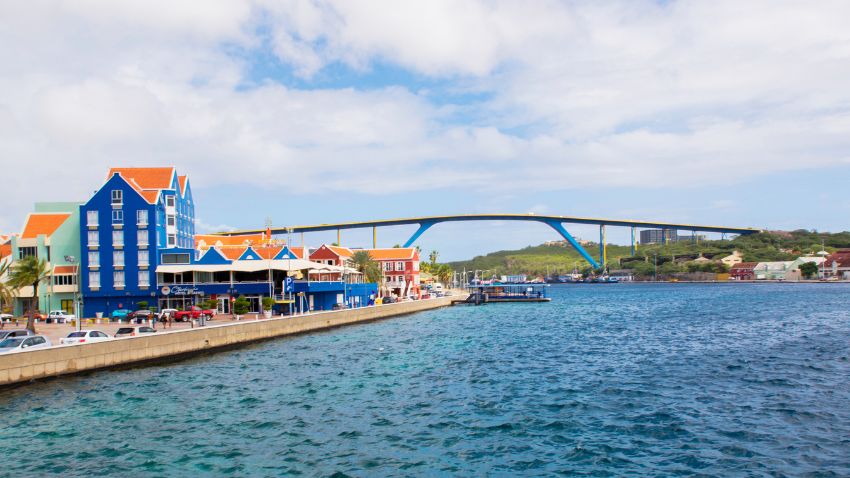
Willemstead, Curacao
Curacao has launched the @Home in Curacao program. For just $294 USD, you can get a six-month remote work visa from Curacao (the perfect way to escape the wintertime), with the possibility to extend for another six months. You will have to demonstrate that you have the economic means to support yourself during this stay, and the application should be processed within two weeks. Curacao is part of the A-B-C islands, Aruba, Bonaire, and Curacao, and is located just north of Venezuela. Curacao is part of the Kingdom of the Netherlands.
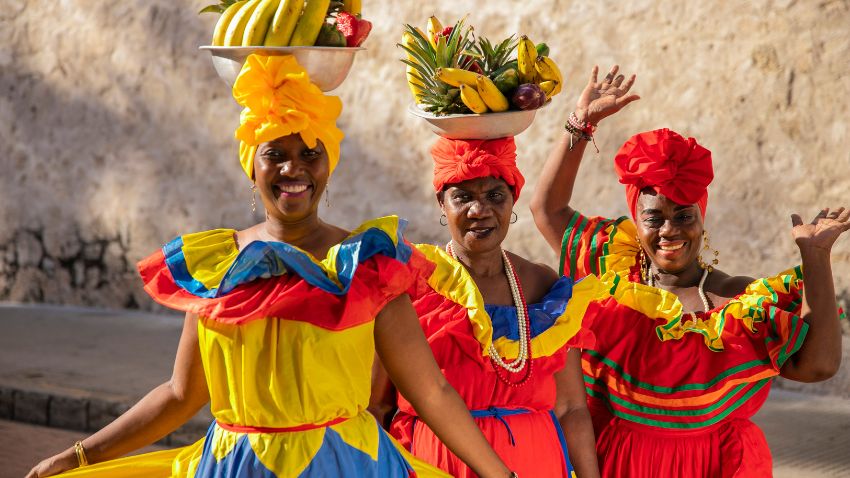
Palenqueras with a fruit basket on their head, Colombia
Colombia will be offering a digital nomad visa in October of 2022. This visa provides the ability to live in Colombia, work remotely for two years, and serve as an immigration pathway for remote workers. The minimum income requirement is quite flexible; you only have to make $684 USD a month, but you must have health insurance. Remote workers, freelancers, and self-employed individuals can all qualify, so long as they are doing business outside of Colombia.
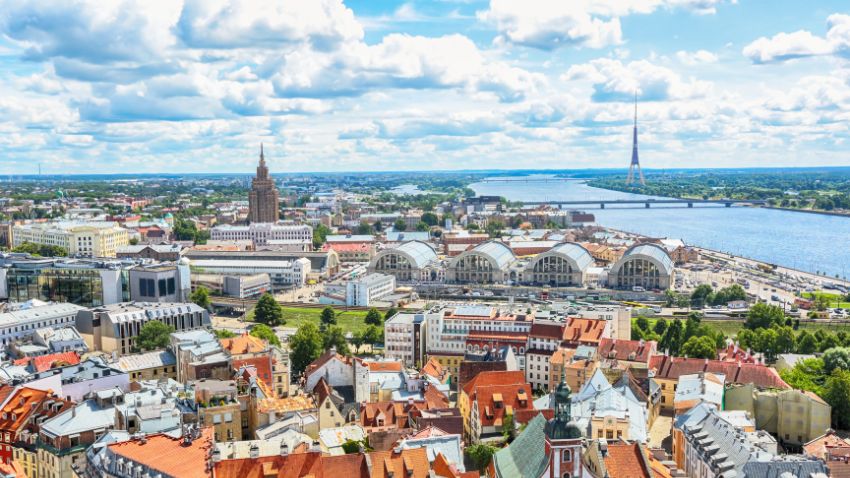
Riga, Latvia
Latvia also has a digital nomad visa. The requirements are an income of at least $2,857 USD a month, health insurance, and proof of employment or self-employment. You cannot bring your dependents along with this visa; the processing time is about two weeks, and the visa is valid for up to a year. You can also renew it for a second year, but after that, you must apply for temporary resident status. Note that only citizens of OCED member states can apply for this visa. Latvia is a relatively small country in Eastern Europe on the Baltic Sea. A former Russian satellite, they are bordered by Estonia to the north, Russia to the east, and Lithuania to the south.
If you want the best intel from the expat world, including profitable offshore opportunities, little-known tax-saving strategies, and hard-won insights on immigration, passports, and Plan-B residencies, all delivered to your inbox every single week, then join our daily correspondence, EMS Pulse®. Currently enjoyed by over 84,000 expats and expat-hopefuls worldwide. Fill in the form below to join our newsletter free:

Written by Mikkel Thorup
Mikkel Thorup is the world’s most sought-after expat consultant. He focuses on helping high-net-worth private clients to legally mitigate tax liabilities, obtain a second residency and citizenship, and assemble a portfolio of foreign investments including international real estate, timber plantations, agricultural land and other hard-money tangible assets. Mikkel is the Founder and CEO at Expat Money®, a private consulting firm started in 2017. He hosts the popular weekly podcast, the Expat Money Show, and wrote the definitive #1-Best Selling book Expat Secrets - How To Pay Zero Taxes, Live Overseas And Make Giant Piles Of Money, and his second book: Expats Guide On Moving To Mexico.

The presidential elections held in Costa Rica on February 1, 2026, resulted in a clear message that once again confirmed Latin America's shift to the...
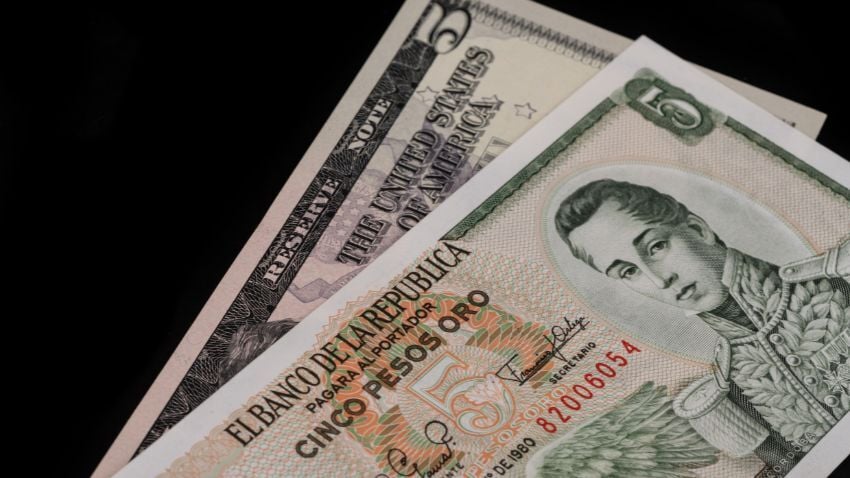
Colombia inspires many thoughts and feelings. Some think of global pop icons like Shakira, J. Balvin, and Karol G. Others are drawn to the magical...
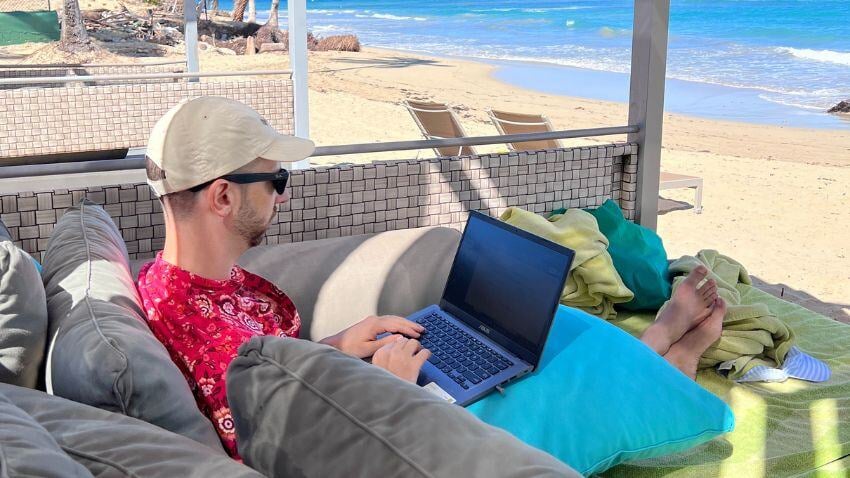
Most people start thinking about moving abroad by asking the wrong kind of question. They ask which country is best for expats, as if there’s some...